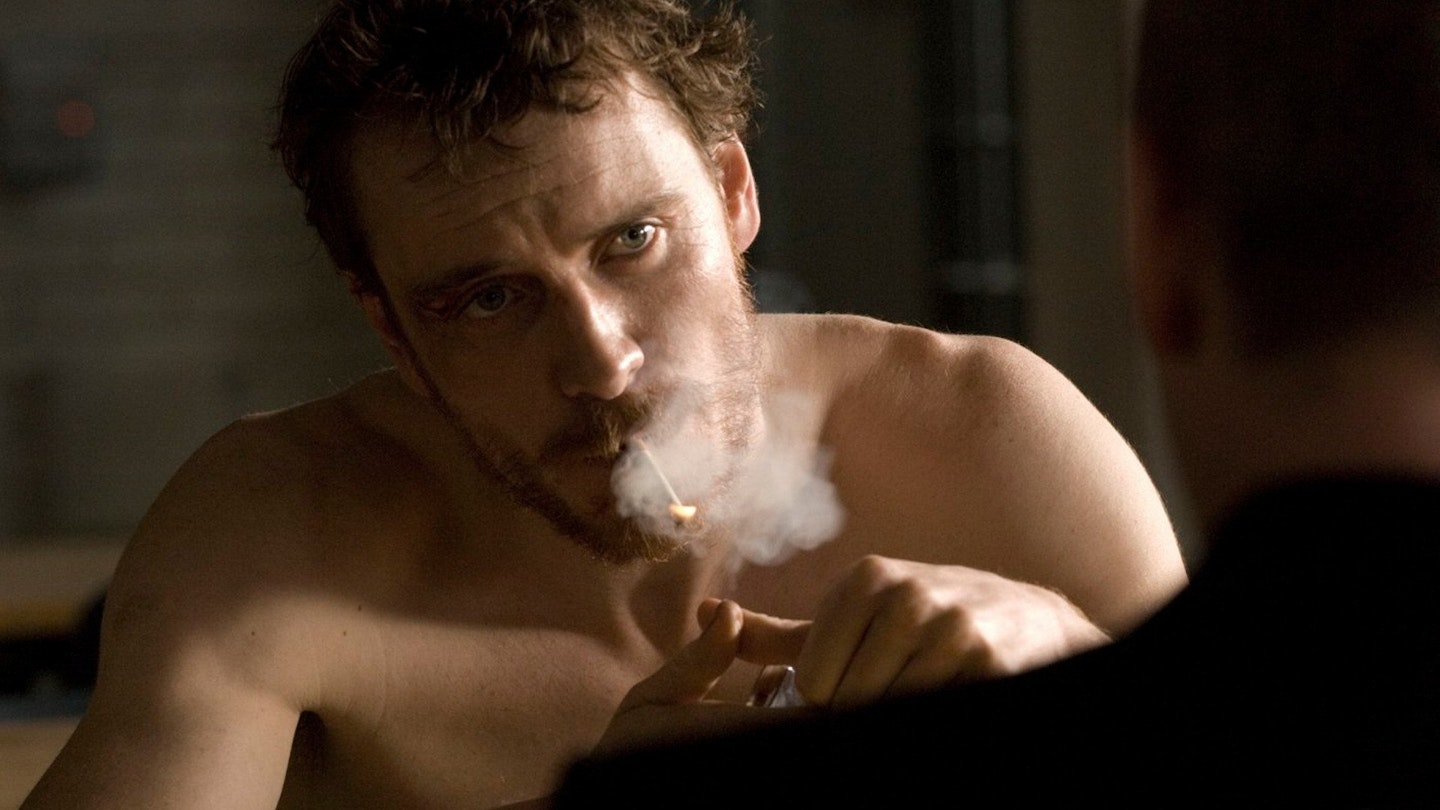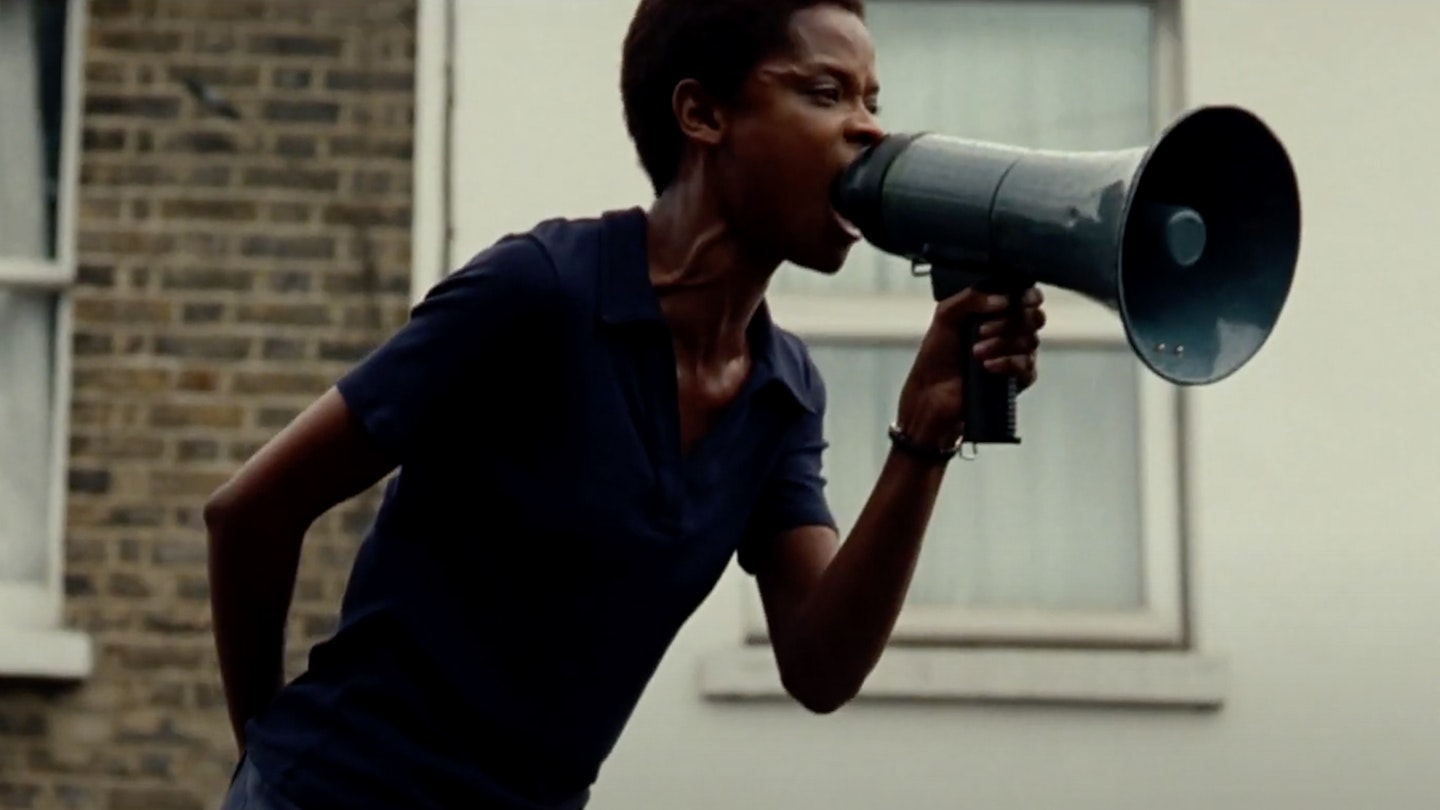What is the grimmest movie ever? Bergman’s Cries And Whispers? Aronofsky’s Requiem For A Dream? Wayans’ White Chicks? Maybe, but you would be hard-pressed to find a film bleaker than Hunger, artist Steve McQueen’s debut feature detailing the starvation strikes in the Maze prison that resulted in the death of Bobby Sands in 1981 (SPOILER!) .Yet this unrelenting darkness should not be held against it. For Hunger is a powerful, difficult piece that announces McQueen as a singular talent, and Michael Fassbender as an actor of note.
This is as far from bog-standard docudrama as you can get. In the early sections, as McQueen intercuts prison officer Raymond Lohan (Stuart Graham)’s routine and inmates Davey Gillen (Brian Milligan) and Gerry Campbell (Liam McMahon) taking part in a blanket protest, the filmmaking is strangely beautiful and technically stunning. Cells covered in muck are vividly evoked, Sean Bobbitt’s camera lingering over swirly patterns of shit. McQueen punctures the languorous artsy feel with visceral handheld violence when Sands is brutally forced to cut his hair. Later, a shot of a prison guard mopping a urine-filled corridor literally lasts minutes.
The effect of this is to make Hunger’s central set-piece all the more startling. Around halfway through, McQueen gets to grips with the issues in a 22-minute locked-off camera shot in which Sands reveals his plan to go on hunger strike to Father Moran (Liam Cunningham), with both debating the merits and ethics of the protest. Despite bravura performances from both actors, the static camera, rather than funnelling your focus, feels distancing, creating a barrier to the ideas and emotions.
On the other side of this talk marathon, McQueen doesn’t shy away from the minutiae of Sands’ starvation, focusing on the bedsores and the prisoner’s withering frame. Some of McQueen’s lapses into religious symbolism towards the end undo the oblique approach of the first third. But, just as Hunger offers no easy pleasures, it offers no simple analysis, and delivers a gruelling, compelling experience. One you probably won’t want to go through again.





